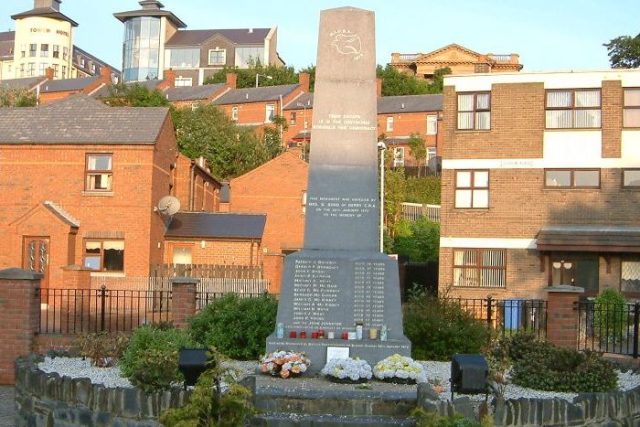A Northern Ireland court ruled Thursday that the sole British soldier facing charges in connection with the 1972 “Bloody Sunday” killings of Catholic protesters will be tried for murder. Ted Magill, a District Judge in Londonderry, decided that the case against the defendant “Soldier F” would proceed, as there was enough evidence to send him for trial.Bloody Sunday was one of the most harrowing days during the period of the Northern Ireland Troubles, a period of conflict between mostly Catholic supporters of a united Ireland and mostly Protestant loyalists to the British crown. 13 people were killed at a civil rights demonstration in Londonderry on January 30, 1972, when British paratroopers opened fire on the crowd. 14 people were injured, and one later died although his death was officially recorded by a brain tumour. According to army evidence, the soldiers discharged 108 rounds. The shootings led to widespread outrage, and the British Embassy in Dublin was burned down.Following the massacre, there was an inquiry that cleared the British authorities of any wrongdoing, which provoked further anger from victims’ families. The Saville Inquiry was then set up during Tony Blair’s premiership, finding that none of the victims were “posing any threat of causing death or serious injury” and “in no case was any warning given before soldiers opened fire.” Following the publication of the inquiry, the Police Service of Northern Ireland began murder investigations, which concluded in 2016. Despite originally charging Soldier F, the charges were dropped after another trial involving Troubles-related killings had failed and prosecutors felt that the evidence was insufficient. Various legal challenges followed, and in September 2022, Northern Ireland’s Public Prosecution Service announced that they would resume the prosecution.The soldier faces prosecution for the murder of William McKinney and James Wray and the attempted murder of five other individuals. The hearing before Magill on Thursday was to decide whether the evidence against Soldier F was strong enough for the case to proceed to the Crown Court, where Soldier F would stand trial. Earlier in the year, Magill had allowed hearsay statements from five former paratroopers to be admitted into evidence. This provided evidence that Soldier F allegedly fired a weapon at the scene of the murders.Head of the Bloody Sunday Trust, Tony Doherty, the son of one of the victims, Patrick Doherty, said:It is over 13 years since the Saville Report was published. It remains a constant source of anger amongst the families that it has taken this long to get to the stage where one soldier is to be prosecuted. We welcome today’s decision and look forward to the beginning of the trial.




The Most Read
Сryptocurrencies
Bitcoin and Altcoins Trading Near Make-or-Break Levels
Financial crimes
Thieves targeted crypto execs and threatened their families in wide-ranging scheme
Financial crimes
Visa Warning: Hackers Ramp Up Card Stealing Attacks At Gas Stations
News
Capitalism is having an identity crisis – but it is still the best system
Uncategorized
The 73-year-old Vietnamese refugee is responsible for bringing Sriracha to American consumers
Uncategorized
Electric Truckmaker Rivian, Backed By Amazon, Ford, Raises Whopping $1.3 Billion